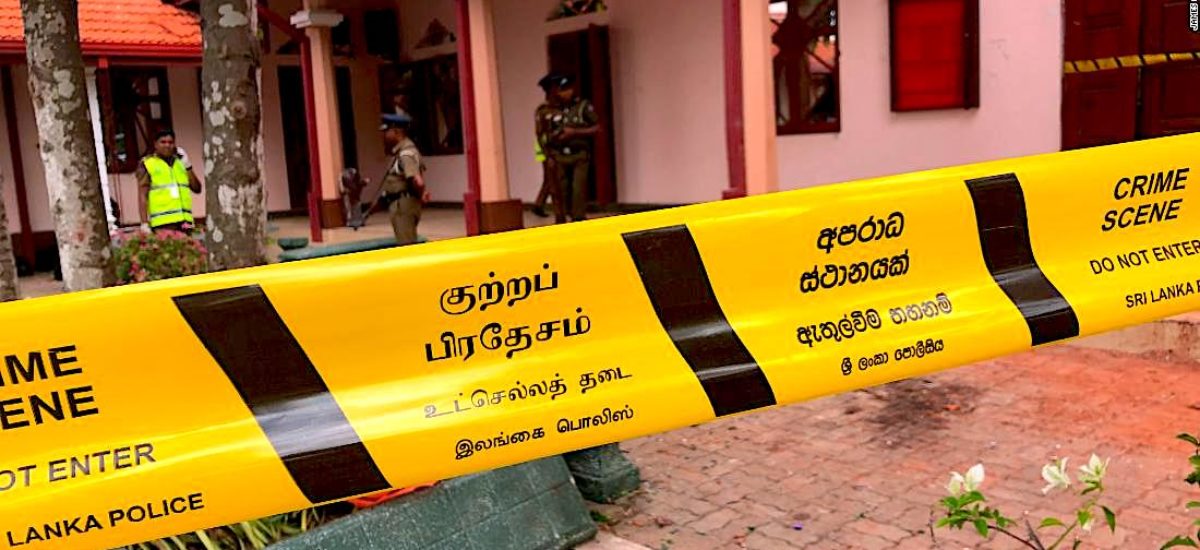Photo courtesy of CNN
In the context of Sri Lanka, a crucial question arises: does the country possess the capability to effectively prosecute crimes? This question can be raised for numerous reasons. However, even before delving into these underlying issues, one glaring reality has become evident in recent years: a perceived lack of commitment on the part of the state to fulfil its obligation and utilize its power to prosecute crimes regardless of any hindrances. This observation is widely shared among the public, who witness a multitude of crimes including heinous acts against individuals or groups such as the victims of the Easter Sunday attacks, as well as pervasive corruption that has paralyzed the entire economy.
The country grapples with other grave crimes associated with the underworld such as drug trafficking, which spawns numerous additional offenses committed by criminal elements. There are allegations of serious crimes involving high ranking officials from institutions such as the police force and intelligence services. Even senior politicians face consistent accusations of wrongdoing. The sheer number of unprosecuted cases is staggering, eclipsing the comparatively few successfully prosecuted crimes. The disparity between these two categories highlights a much deeper issue – the state’s approach to its duty to prosecute crimes and safeguard its citizens. Perhaps the prevailing non-prosecution scenario can be seen as a reflection of the attitude demonstrated by former President J.R. Jayewardane, who publicly stated that individuals must take responsibility for their own security, effectively abdicating the state’s obligation to prosecute crimes. In fact, such a statement qualifies its maker as someone complicit in criminal behavior. Any political leader who undermines or ridicules the state’s duty to prosecute crimes poses a significant threat to the existence of the state itself.
A state can only endure to the extent that it recognizes certain actions as crimes that undermine not only societal stability but also the stability of the state itself. It is not an exaggeration to claim that political leaders who neglect their duty to ensure the prosecution of all crimes perpetrate a far graver harm than terrorists or criminals. Terrorism is understood as the unlawful actions of those who oppose the state and seek to undermine its authority. In response to terrorism, the state possesses the power to employ both the justice system and armed forces. However when those who represent the state undermine its operations and jeopardize stability within the community society, and the state itself, there is little force capable of countering such a monumental threat. Therefore, political leaders who undermine the state’s power to prosecute crimes inflict greater damage than terrorists or criminals. This is the gravity of the situation currently faced in Sri Lanka where the stability of the country is threatened from within by a state that neglects, disregards and undermines one of its primary responsibilities, which is the prosecution of crimes and the protection of its citizens.
What compounds this situation is that it is not solely the result of individual leaders’ attitudes but rather a broader set of structural changes that have occurred within Sri Lanka affecting the nature and function of governance itself. The primary reason for undermining the role of prosecuting crimes is the need to create an environment that facilitates widespread corruption and abuse of power. Consequently, the underlying principles and philosophy of governance have undergone a fundamental transformation. State institutions have been tampered with to enable an environment where certain individuals or groups can engage in fundamentally criminal activities, yielding enormous profits within a short span of time. Facilitating this group’s interests becomes the primary objective of governance. Consequently, agencies responsible for prosecuting crimes find themselves subjected to immense pressures and manipulations, rendering it virtually impossible for them to operate in accordance with the law. Officers who attempt to fulfil their lawful duties as prescribed by law are exposed to serious threats including threats to their lives. Numerous instances have been reported where officers have allegedly been murdered or subjected to other forms of punishment due to their attempts to carry out their duties as required.
There are underlying shifts in the principles governing the country’s governance and the functioning of its legal system. Non-prosecution of crimes stems from this larger transformation, which lies at the root of the massive economic crisis plaguing the nation and the inability to mobilize effectively against this destructive force. Overcoming this economic crisis necessitates a robust ability to prosecute crimes that undermine the economic and political systems. If the prosecuting function is not permitted to operate with utmost strength, the persisting crisis in the economy, governance and society cannot be halted.
One of the most potent weapons in fortifying the state and society’s capacity to combat the economic collapse is to implement systemic changes that eliminate the obstacles impeding proper prosecution of crimes. This includes ensuring thorough investigations into crimes and re-evaluating the functioning of the prosecutor’s office, which operates under the purview of the Attorney General’s office, in a manner distinct from its current state.

